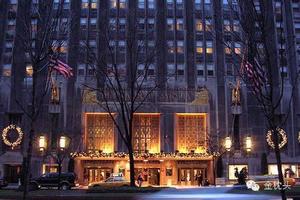China syndromeSecurity concerns over purchase of Waldorf Astoria by Chinese company
Citing espionage risk, U.S. officials are expressing concern over the sale of the historic Waldorf Astoria hotel in New York City to a Chinese insurance company. The sale of the hotel will likely lead to a review by the U.S. Committee on Foreign Investment (CFIUS) of the Chinese firm’s long-term plans for the site and the finer details of the sale. “Because the agreement calls for major renovations to the hotel, CFIUS will be worried that the Chinese could engage in some form of espionage,” said a former Treasury Department official who managed CFIUS reviews.

The iconic Waldorf Astoria Hotel in New York // Source: qoofan.com
Citing espionage risk, U.S. officials are expressing concern over the sale of the historic Waldorf Astoria hotel in New York City to a Chinese insurance company.
As Insurance Journal reports, the Beijing-based Anbang Insurance Group purchased the property from Hilton Worldwide on 6 October for $1.95 billion. Under the terms of the sale, Hilton will still be allowed to manage the site for the next 100 years, despite a clause for “a major renovation,” which has raised eyebrows among security experts.
What adds to the security worries is the history of the hotel, as Edward Moles, the hotel’s public affairs director in the 1970s and 1980s, said. “There was virtually hardly a room, a suite or a restaurant table or a ballroom that wasn’t wired. I assumed that it was the U.S. government, some aspect of our government, that put them in and controlled them. At least I hoped so.”
In response to these worries, a spokesman for the hotel chain has stated that he is “confident there are no national security issues as a result of this transaction,” and that “Should we receive any inquiries from a government agency we will continue to fully comply.”
Addressing Moles assertions, the spokesman added that it would be “Impossible to comment on unsupported rumors nearly 40 years old.”
The sale of the hotel will likely lead to a review by the U.S. Committee on Foreign Investment (CFIUS) of the insurance firm’s long-term plans for the site and the finer details of the sale.
“Because the agreement calls for major renovations to the hotel, CFIUS will be worried that the Chinese could engage in some form of espionage,” said Nova Daly, a former Treasury Department official who managed CFIUS reviews.
“CFIUS has broad authority to impose conditions on Anbang if it finds national security risks with the transaction, including possibly restricting foreign access to the hotel,” said Anne Salladin, another former Treasury official.
Even more likely is that U.S. intelligence services will continue to worry about renovations and modifications no matter the verdict by CFIUS, and how the structure could accommodate such Chinese eavesdropping and cyber espionage equipment.
The hotel currently serves as the home of the American ambassador to the United Nations Samantha Power, as well as hosting President Barack Obama and hundreds of U.S. diplomats during the annual U.N. General Assembly.
“The real question isn’t who owns the facility, but who operates it,” concluded Joel Brenner, a former inspector general and senior counsel at the National Security Agency. That could be decided more firmly soon, pending a CFIUS review.
